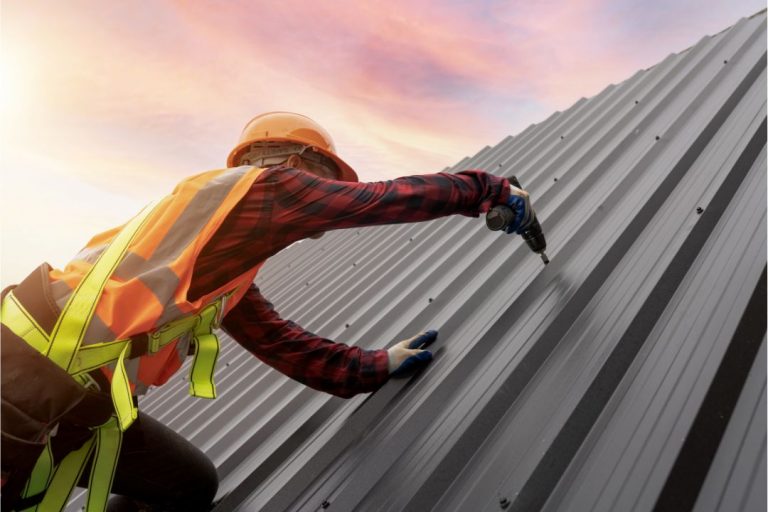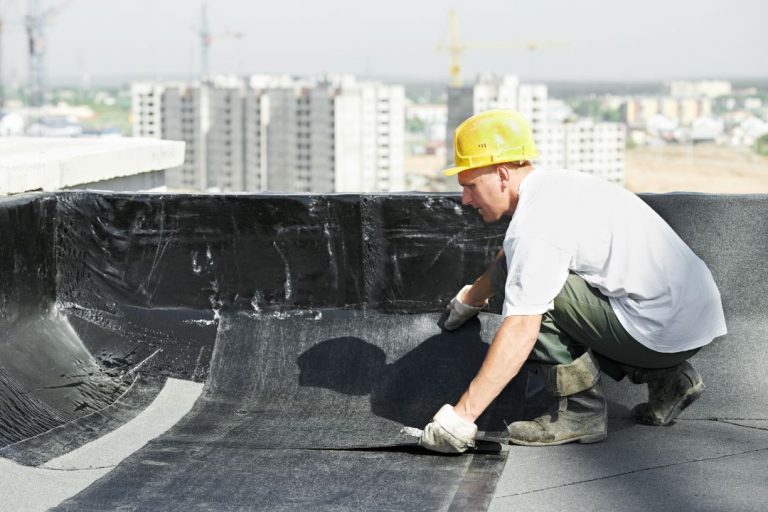COMMERCIAL FLAT ROOFING

What is the best roof for a commercial building?
As a roofing contractor at Windward Roofing, I’ve encountered a wide range of roofing types and materials throughout my career. Each building and business has its unique requirements, from climate considerations to budget constraints, making the question of the best roof for a commercial building an important one. In this blog post, I’ll explore the various roofing options available, their advantages and disadvantages, and offer insights to help you make the best decision for your commercial property.
Understanding Commercial Roofing
Commercial roofs differ significantly from residential roofs in terms of design, installation complexity, and materials used. They are often flat or have a low slope, which necessitates unique materials to ensure durability, energy efficiency, and water resistance. The most common types of commercial roofing systems include:
1. Built-Up Roofing (BUR) Membranes
Built-Up Roofing, also known as tar and gravel roofs, are one of the oldest and most reliable roofing systems for commercial buildings with low-slope roofs. They are constructed with several layers of bitumen surfaces and finished with an aggregate layer or coating.
2. Metal Roofing
Metal roofs are favored for their durability, longevity, and sustainability. They can be made from various materials, including aluminum, steel, copper, and zinc alloys, each offering different benefits.
3. Thermoset (EPDM) Roof Membrane
Ethylene Propylene Diene Monomer (EPDM) is a durable synthetic rubber roofing membrane widely used on low-slope buildings. It’s known for its long-term durability, versatility, and ease of installation.
4.
Polyvinyl Chloride (PVC) and Thermoplastic Olefin (TPO) are lightweight, highly reflective roof membranes known for their strength and resistance to pollutants, chemicals, and ultraviolet light.
Excellent durability and resistance to punctures, tears, and water
Reflective surfaces help reduce cooling costs
Suitable for restaurants and buildings that emit oils from ventilation systems
Can be more expensive than other options
The quality of TPO roofs can vary depending on the manufacturer
5. Green Roofs
Green roofs are covered with vegetation, offering a sustainable option that improves insulation, reduces stormwater runoff, and lowers urban heat islands.
6. Spray Polyurethane Foam (SPF) Roofing
Spray Polyurethane Foam (SPF) is a seamless roofing option sprayed directly onto the roof deck, then coated with an elastomeric coating for protection against the elements.

Making the Right Choice
Choosing the best roof for a commercial building depends on several factors, including:
Climate: Consideration of local weather patterns (e.g., high winds, heavy rainfall, snow) is crucial in selecting a roofing material that can withstand such conditions.
Building Use: The type of activities conducted within the building can influence the choice of roofing material. For instance, buildings that house heavy machinery or produce oils may benefit from chemical-resistant roofs like PVC or TPO.
Energy Efficiency: If reducing energy costs is a priority, reflective materials like TPO or green roofs can offer significant savings.
Budget: While it’s important to consider upfront costs, the long-term maintenance, repair, and replacement costs should also be factored into the decision-making process.
Conclusion
There’s no one-size-fits-all answer when it comes to the best roof for a commercial building. Each option has its unique set of benefits and limitations. Understanding that every commercial property is unique, at Windward Roofing, we stand ready to provide you with personalized, expert advice tailored to your specific roofing needs. Whether you’re considering a new roof installation, replacement, or require maintenance insights, our team of experienced professionals is here to guide you through the selection process, ensuring that your commercial roof is not only durable and cost-effective but also perfectly suited to your business requirements.
We invite you to schedule a consultation call with us today. During this call, we’ll discuss your roofing needs, explore various options, and help you navigate the complexities of commercial roofing. This is your opportunity to ask questions, get expert advice, and take the first step towards securing a roofing solution that aligns with your budget, energy efficiency goals, and long-term business objectives.
Don’t leave your roofing needs to chance. Let Windward Roofing provide you with the expertise and quality service you deserve. Contact us now to schedule your personalized roofing consultation and ensure your commercial building is topped with the best roof possible.
How Can We Help?
We provide thorough roof assessments and expert repairs, along with maintenance programs and re-roofing services. We’re always ready to respond to your unique roofing requirements.
For immediate assistance, get in touch through our live chat.
Our team is standing by.

